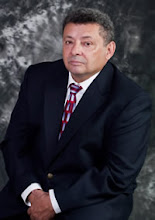
Editor's Note: As a San Diego immigration lawyer, one of my pleasures is learning about cultures throughout the world. In this post, a Nigerian colleague, Olusegun Iselaiye, explains facts about Christmas in Africa which may surprise you.
An Overview: Christianity in Africa
Unknown to much of the Western world, there are about 350 million Christians in Africa. And Christmas is a main event, another fact commonly unknown by many Westerns - even Christians living in the Western world.
Celebrated on the 25th of December worldwide, Christmas is perhaps the world's most famous celebration. But there are many different ways this holiday is celebrated, especially in Africa.
Some Christians in Africa - primarily those living in Ethiopia and Egypt - are called the Coptic Christians, Their dogma sets forth a different calendar. They celebrate Christmas on the 7th of January of every year.
Christmas In Nigeria
In Nigeria, where I live, many citizens return to their respective villages from within and outside Nigeria to celebrate Christmas with their families.
During Christmas in Nigeria, you can expect to see a combination of the following:
- Fun-filled street carnivals characterized with so many attractions like barbecue, games, clowns, and even Santa Clause stands
- Parties – ranging from birthday parties to wedding ceremonies. During this period, you can not get bored if you are the partying type because you’ll have events galore to attend
- Well-decorated streets, offices, hotels, buildings, and homes. Fake snows decorate the fronts of stores in the Christian communities while Christmas trees are seen throughout local neighborhoods.
- The market places get clogged with different breeds of chicken – some even often resemble vultures because they’ve been roughly handled by their unrepentant sellers
- In the night, you will see clusters of what we call “beer parlors”, in Nigeria, where people gather to relax their nerves over some bottles of beer with pepper soup, “suya”, “nkwobi,” and barbecue
- Traffic jams due to so many church activities like conventions, anniversaries, conferences, and special season’s prayers, etc.
- Fuel (gasoline) scarcity. This usually results from hoarding because the independent dealers want to make more money during this special season
- Several road accidents. People get drunk with alcohol, and become extremely impatient with one another while on the roads and this causes a lot of accidents.

Christmas Eve In Africa
Many Africans enjoy this day more than Christmas Day.
 |
In Nigeria, Christmas Eve is known as “Watch Night Day” because Christians, upon returning from mass, watch home videos, and start making snacks like chin-chin or cake.
On Christmas Eve, there are parties in different places or people just hook up and have drinks together mostly with pepper soup or peppered roasted meat (suya).
Christmas Fireworks
Fireworks are a unique part of the Christmas celebration in Africa.
All the cities including remote villages in West Africa engage in what I call colossal fireworks.
The government has made several attempts to stop this but their attempts have proved futile.These fireworks sometimes cause much damage. Some people have lost their lives, yet many people refuse to stop using fireworks.
Christmas Season Cooking and Outings
In Ghana, Christmas is incomplete without fufu and okra soup.
People celebrate with bar-be-ques in South Africa, bread, jam and tea along with goat meat in Zimbabwe, and rice and beef in Liberia.
In Nigeria, jollof rice with chicken is highly favored but some prefer pounder yam (iyan) with egusi soup.
All this cooking and eating is done usually after attending Christmas service in church.
After eating, it’s time for an outing - particularly for the kids who like to visit family members and friends, who may give them money or gifts.
For children, they cherish this time because they get to show-off their special Christmas clothes.
Santa Claus
Children in Africa also believe in Santa Claus, just like their European and American counterparts.
In West Africa, Santa Claus is referred to, as “Father Christmas.” Children enjoy being taken by their parents or elder ones to see “Father Christmas” who gives them a gift.
Christmas Gifts
The inhabitants of rural Africa are too poor to exchange quality gifts or to buy toys for their children as Christmas presents.
In West African, many Africans share Christmas meals with their neighbors and family who in turn, reciprocate the gesture.
The wealthier families engage in the gift buying and giving culture of the Western World.
As you can see, there are different ways and styles in which Christmas is celebrated in Africa. Like elsewhere, exactly how they celebrate Christmas depends on their cultural influences, geographical locations, religious teachings, and economic situations.
Merry Christmas To All!

















